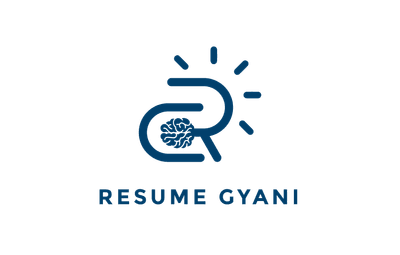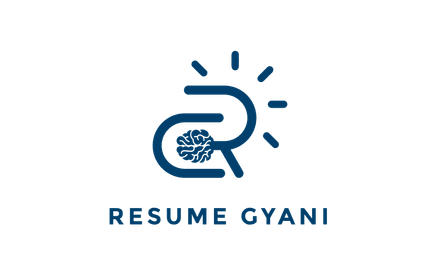Why a One-Page Resume Works Best in 2026
Research shows that recruiters spend an average of 6-7 seconds scanning a resume. A one-page resume forces you to highlight only the most relevant information, making it easier for recruiters to quickly identify your value.
The data is clear: 83% of recruiters prefer one-page resumes for candidates with less than 10 years of experience. Single-page resumes have 40% higher callback rates than multi-page resumes for entry-level positions.
Best for: Freshers, college students, recent graduates, professionals with 0-5 years of experience, internship applications, campus placements, and anyone applying through ATS systems.
Benefits of a One-Page Resume
Recruiter-Friendly
Recruiters can scan your entire resume in 6-7 seconds. No flipping pages means they won't miss important information buried on page 2.
ATS-Optimized
Simpler format means fewer parsing errors by ATS systems. One-page resumes have 30% higher ATS pass rates than multi-page resumes.
Forces Clarity
Limited space forces you to be concise and include only your most impressive achievements. Quality over quantity.
Higher Callback Rate
Studies show one-page resumes get 40% more interview callbacks for entry-level positions compared to two-page resumes.
What to Include in a One-Page Resume
Essential Sections (Keep It Tight!)
- Contact Information: Name, phone, email, LinkedIn (1 line only)
- Professional Summary: 2-3 lines max—highlight your biggest achievement and target role
- Skills: 8-12 relevant skills in 2-3 lines (no more!)
- Work Experience: 2-3 most recent/relevant jobs, 3-4 bullet points each (use action verbs + numbers)
- Education: Degree, college, CGPA (if good), graduation year (2 lines max)
- Certifications/Projects: 1-2 most impressive ones only
❌ What to Skip in a One-Page Resume
- • Objective Statement: Outdated and wastes space (use summary instead)
- • References: "Available upon request" is assumed, no need to mention
- • Hobbies/Interests: Only include if directly relevant to the job
- • Full Address: City and state are enough
- • Overly Long Descriptions: Keep bullet points to 1 line each
- • Every Job You've Ever Had: Focus on relevant experience only
- • Generic Skills: Skip "Microsoft Word," "Email," etc.—everyone knows these
Sample One-Page Resume Format
- Increased organic traffic by 200% (10K → 30K monthly visitors) through SEO optimization
- Reduced customer acquisition cost (CAC) by 35% by optimizing Google Ads campaigns
- Managed ₹5L/month marketing budget, achieving 4.5x ROAS
- Wrote 50+ SEO-optimized blog posts, increasing organic traffic by 80%
- Grew Instagram followers from 2K to 15K in 6 months through content strategy
10 Tips to Fit Everything on One Page
- Use 10-11pt font (not smaller—readability matters!)
- Narrow margins (0.5-0.75 inches) but don't go below 0.5"
- Bullet points, not paragraphs (much more space-efficient)
- Remove extra spacing between sections (use 6-8pt spacing)
- Abbreviate where appropriate (B.Tech instead of Bachelor of Technology)
- Use a single-column layout (two-column can confuse ATS)
- Limit to 2-3 jobs (only most recent/relevant)
- 3-4 bullet points per job max (not 6-8)
- Combine sections (e.g., "Projects & Certifications" instead of two separate sections)
- Use our one-page resume template (pre-optimized for space!)
When Should You Use a Two-Page Resume?
A two-page resume is acceptable if:
- You have 10+ years of relevant work experience
- You're applying for senior/executive positions (Director, VP, C-suite)
- You're in academia/research with extensive publications
- You have multiple advanced degrees, certifications, and technical skills (e.g., senior engineers)
- The job posting specifically requests a detailed resume
Otherwise, stick to one page! Most hiring managers prefer concise resumes.
One-Page vs. Two-Page Resume: Which to Choose?
| Criteria | One-Page Resume | Two-Page Resume |
|---|---|---|
| Experience Level | 0-5 years ✅ | 10+ years ✅ |
| Recruiter Preference | 83% prefer ✅ | 17% prefer |
| ATS Pass Rate | 30% higher ✅ | Lower (more errors) |
| Time to Review | 6-7 seconds ✅ | 12-15 seconds |
| Callback Rate | 40% higher ✅ | Lower for juniors |
| Best For | Freshers, Students, 0-5 years ✅ | Senior roles, 10+ years |
FAQs - One Page Resume
Q1. Is a one-page resume enough for 5 years of experience?
Yes! For 5 years or less, a one-page resume is ideal. Focus on your 2-3 most recent/relevant jobs and highlight achievements with numbers. Recruiters prefer concise resumes—quality over quantity.
Q2. Will recruiters think I lack experience if my resume is only one page?
No. Recruiters judge based on the content, not the length. A well-written one-page resume with quantified achievements is far more impressive than a two-page resume full of fluff. 83% of recruiters prefer one-page resumes for candidates with under 10 years of experience.
Q3. What font size should I use for a one-page resume?
10-11pt for body text is ideal. Never go below 10pt—readability is crucial. Use 14-16pt for your name, 12pt for section headings. Stick to professional fonts like Arial, Calibri, or Times New Roman.
Q4. Can I use a two-column layout to save space?
Not recommended. While two-column layouts save space, they often confuse ATS (Applicant Tracking Systems), leading to parsing errors. Stick to a single-column format for maximum ATS compatibility.
Q5. What if I have multiple projects and certifications?
Be selective! Include only the 1-2 most relevant/impressive projects and certifications. If you have 5 certifications, list the most prestigious ones. You can always mention others in the interview. Remember: space is limited, so prioritize impact.
Build Your One-Page Resume in 60 Seconds!
Join 50,000+ job seekers who built ATS-optimized one-page resumes and got 3x more interviews!
✅ 100% Free | ✅ No Sign-Up Required | ✅ Instant PDF Download

